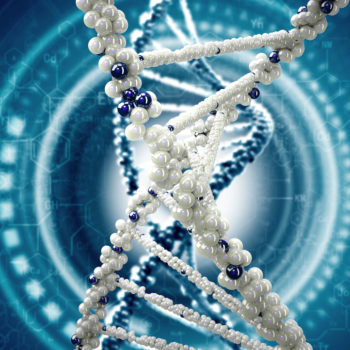An early-onset Alzheimer's diagnosis unleashes a landslide of questions: What is early-onset Alzheimer’s disease, what are its symptoms, and how does it differ from older onset Alzheimer's? We take a closer look.
When younger people receive an Alzheimer’s diagnosis, it’s often met with confusion. Many people aren’t aware that this fatal, neurodegenerative form of dementia can affect people under 65 — much less people in their 30s. Here, we tackle a few of the most common questions about the disease:
What is early-onset Alzheimer’s?
Early-onset Alzheimer’s is a specific type of Alzheimer’s dementia defined by a diagnosis before the age of 65. It constitutes about one in every 20 Alzheimer’s cases.
What are the symptoms of early-onset Alzheimer’s?
Alzheimer’s disease — including early-onset — affects the brain, especially in areas that involve memory, behavior and language. A healthy brain can send messages through neuron cells to keep the body functioning and Alzheimer’s interrupts those pathways. Alzheimer’s eventually leads to dementia.
Early-onset Alzheimer’s is known for causing dementia, but there are a range of other cognitive symptoms that may come with it as well. These typically begin to occur around the age of 60, though symptoms can be present in people as young as their 30s. The most noticeable symptoms of early-onset Alzheimer’s are:
- Forgetfulness
- Lapses in memory
- Low attention span
- Impaired language
- Changes in personality
- Mood swings
Since Alzheimer’s is generally associated with older adults, it can be difficult for a person facing early-onset to get an accurate diagnosis. Experts recommend that people between age 30 and 65 experiencing problems with memory or the symptoms listed above see a doctor that specializes in Alzheimer’s.
There is currently no cure for early-onset Alzheimer’s dementia. However, the earlier someone is diagnosed, the better chance that they may be able to to participate in clinical trials for experimental treatments, or that existing symptomatic treatments will be effective. Research shows they may also have a more positive response to medications currently used to treat symptoms like memory loss.
Does Early-onset Alzheimer’s progress at a faster pace than Alzheimer’s that appears later in life?
In some studies, early-onset Alzheimer’s is has been observed to have a more rapid course compared to late-onset Alzheimer’s, and this is the general understanding — that Alzheimer’s does in fact move faster in younger people. However, other studies haven’t found any statistically significant increase in the course of progression as compared to later onset Alzheimer’s. The question is also complicated by the fact that familial or genetic Alzheimer’s and non-genetic or common Alzheimer’s may have different pathological characteristics, but researchers are still getting to the bottom of these differences.
What is the life expectancy of people with early-onset Alzheimer’s?
There are numerous factors that affect the lifespan of younger people diagnosed with Alzheimer’s. A recent study from Cambridge found that younger people survived longer with Alzheimer’s than those diagnosed over the age of 65. But when compared to cognitively healthy individuals in their age group, the lifespan of someone with early-onset Alzheimer’s was greatly reduced.
Typically, people with early-onset Alzheimer’s may face a number of other health conditions in addition to dementia, which makes expected lifespan with this diagnosis varied and difficult to pin down. Research has found that most people with Alzheimer’s live for an average of between five and 20 years after a diagnosis, but every case is different.
Neurologist Dr. Daniel C. Potts shared doctor-recommended lifestyle changes and resources with Being Patient. He suggests good nutrition, an exercise regimen and attention to sleep cycles for both the patient and the caregivers. He also recommended making good mental health a priority for everyone.
How much higher are my chances for developing early-onset Alzheimer’s if I have a high-risk gene?
Scientists still don’t know exactly what causes Alzheimer’s — neither early-onset nor later onset Alzheimer’s — nor do they fully understand the role of genetics. (See related articles below to learn more.) So far, research does show that some genes are associated with a much higher risk of developing Alzheimer’s dementia than others.
Dr. James Ellison of the Swank Memory Care Center at Christiana Care Health System in Delaware writes that the majority of early-onset Alzheimer’s disease does not run in families. Some families, however, do have genetic mutations that almost guarantees development of early-onset Alzheimer’s. If a person carries genes associated with early-onset Alzheimer’s, according to the National Institute on Aging, there’s a strong probability that they will develop the disease.
When someone first shows cognitive symptoms of early-onset Alzheimer’s, it might be because they carry a genetic mutation known to be associated with early-onset Alzheimer’s. The best-known include:
- Amyloid precursor protein (APP)
- Presenilin 1 (PSEN1)
- Presenilin 2 (PSEN2)
Genes PSEN1 and PSEN2, for example, may carry as much as a 99-percent chance of Alzheimer’s onset by age 50.
In most people, these genes will lead to an early-onset Alzheimer’s between a person’s late 30s and early 60s. But do these early-onset genes tell us about the underlying cause of Alzheimer’s at large? Scientists still aren’t quite sure.
Complicating matters further, not all early-onset Alzheimer’s cases have one of these genetic links. If APP, PSEN1 or PSEN2 are present, however, it’s an indication that other family members may also carry this elevated Alzheimer’s risk.






I have a sister with early onset Alzheimers and a mother and grandmother who both had Alzheimer’s. I’d like any informatiion you might be able to give me. This article was great even though I already have done a lot of research on this topic. I am 9 years older than my sister. She was about 59 when we noticed the problems.